Anything from cheap fairy lights to paint rollers can be used as a light painting tool, says Andrew Whyte, and the results are quite dazzling

Known by many names, light painting (or light graffiti, light art, painting with light) is a well-established photographic process with roots that can be traced back to the early days of photography. The practice of using light to trace a path into an image began with time-in-motion studies and subsequently evolved creatively in the hands of artists like Man Ray, Picasso, and photographer Eric Staller. Pre-digital, the technique was hugely experimental, given both the characteristics of film during long exposures and the fact that you had to wait for visual feedback on your results.
But as camera technology has improved, along with that of small, battery-powered lights (and the batteries themselves), light painting has become infinitely more accessible, and is commonly seen as a photographic rite of passage – with good reason. The processes of light painting encourages experimentation and rewards creativity, not to mention demanding that practitioners break out of their comfort zones into the world of full manual camera operation.
Why? Simply put, using Shutter Priority or Aperture Priority means that you are asking the camera to make decisions on your behalf. Any stray light or shadow detected by the camera while it’s metering will affect the settings used. Oncoming headlights, for instance, may trick the camera into thinking that the scene is brighter than it is, leading to underexposure. While you may end up with a great shot, relying on the camera’s choices means that you are removing the guarantee of consistency. Far better to take control, let your light painting tools determine the aperture you set, and adjust the shutter speed to influence the amount of ambient light gathered by the camera. Use the slower pace of night to reflect on results and changes to settings to get the image you’re after.
Try a black background
Diese Geschichte stammt aus der January 28,2017-Ausgabe von Amateur Photographer.
Starten Sie Ihre 7-tägige kostenlose Testversion von Magzter GOLD, um auf Tausende kuratierte Premium-Storys sowie über 8.000 Zeitschriften und Zeitungen zuzugreifen.
Bereits Abonnent ? Anmelden
Diese Geschichte stammt aus der January 28,2017-Ausgabe von Amateur Photographer.
Starten Sie Ihre 7-tägige kostenlose Testversion von Magzter GOLD, um auf Tausende kuratierte Premium-Storys sowie über 8.000 Zeitschriften und Zeitungen zuzugreifen.
Bereits Abonnent? Anmelden

Calling The Shots: A Queer History of Photography
Offering an unprecedented view of photographic history through a queer lens, this is a wonderful and powerful book, says
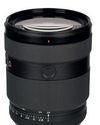
Large-aperture standard zoom, too
SONY has also revealed a new premium standard zoom, the FE 28-70mm F2 GM.

Super-fast, high-res Sony Alpha Ai II
SONY has announced its new professional full-frame flagship camera, the Alpha A1 II.
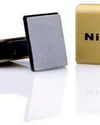
39 awesome accessories
Our round-up of the best accessories we've used and reviewed this year, along with some old favourites. There's something here for every budget, starting from just £7, including tripods, bags, filters and much more

Such a thing as society
This autumn sees the launch of a major new book and exhibition devoted to examining the multiplicities of photography during 1980s Britain. Peter Dench finds out more

Join Club
The sociable Canvey Island Photographic Club is keen to grow its in-person meet ups
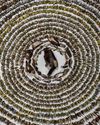
Capturing flight
Winners and finalists of Bird Photographer of the Year share their tips for success with Hollie Latham Hucker
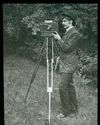
140 years of change
AP has become the world’s oldest surviving consumer photo magazine because we have moved with the times, says Nigel Atherton

Preserving history in platinum
A deep dive into the meticulous art of platinum printing, and the collaboration between the Royal Geographical Society and Salto Ulbeek. Mike Crawford explores how they brought historical photographs to life with enduring beauty and precision
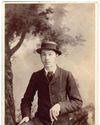
Life in the past lane
What was life like for an amateur photographer in 1884? John Wade takes a trip back in time